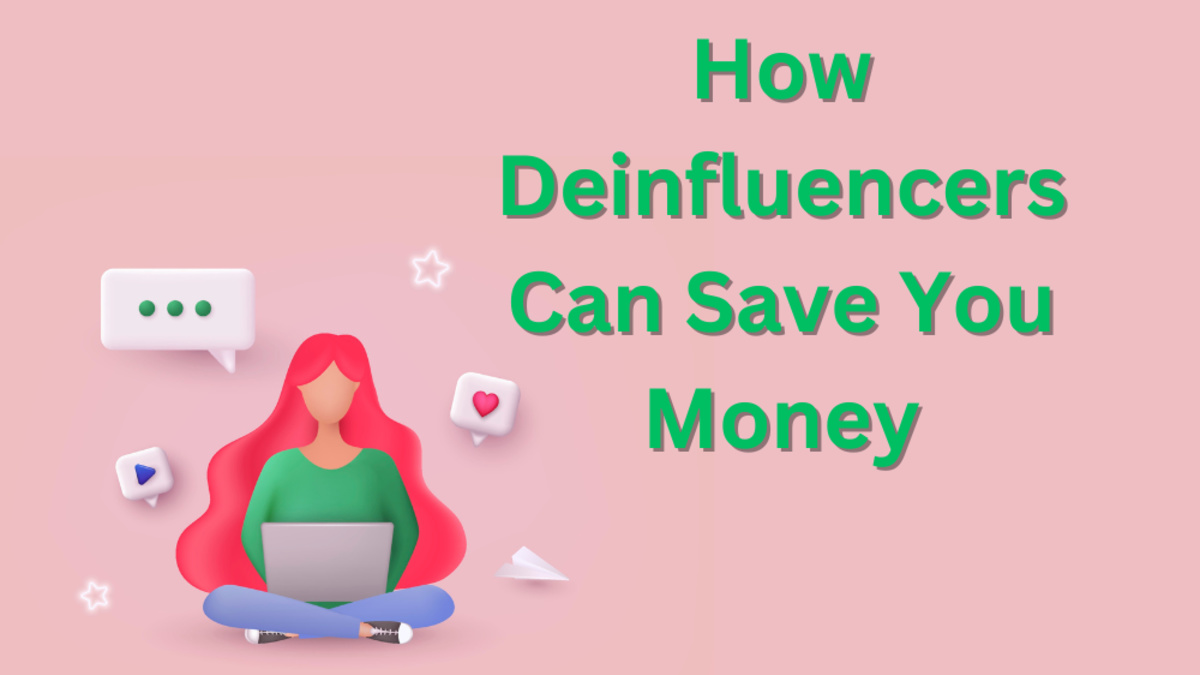How Deinfluencers Can Save You Money

Joy Wallet is advertiser-supported: we may earn compensation from the products and offers mentioned in this article. However, any expressed opinions are our own and aren't influenced by compensation. To read our full disclosure, click here.
What are deinfluencers?
- Sign up for FREE & complete your profile
- Earn points for taking surveys
- Redeem your points for cash or gift cards
- $55k+ Paid to Survey Junkie members daily
- Complete 3+ surveys a day, earn up to $100/mo.
How popular are TikTok deinfluencers?
- In one of @tamillionaire4eva's latest TikTok videos, she tells her followers that her number one rule to save the most money and get the best version of products is simple: Always wait until a second or third generation comes out. Her rationale? Later versions of products usually have fewer issues, lower prices, and more quality improvements.
- @alyssastephanie has a lot of opinions about fashion, health, and beauty products as someone who spends lots of money on these items every year. She tells her followers about the TikTok cult products she hates: skin serums, hair products, creams, etc. She even decided to substitute her usual Supergoop sunscreen, which can cost about $48, for a similar alternative at Trader Joe’s that costs just $8.
- In one of @chloe.chapdelaine's TikTok videos, she addresses her followers, saying, “I’m going to tell you what you don’t need.” Speaking out about beauty products, she recommends buying hair bands at your local dollar store instead of those expensive puffy headbands to do your makeup. She also recommends using baby oil to remove waterproof makeup instead of costly makeup removers.
Are deinfluencers legitimate?
Are deinfluencers trying to help you save money?
- Sign up for FREE & complete your profile
- Earn points for taking surveys
- Redeem your points for cash or gift cards
- $55k+ Paid to Survey Junkie members daily
- Complete 3+ surveys a day, earn up to $100/mo.
The bottom line
Joy Wallet is an independent publisher and comparison service, not an investment advisor, financial advisor, loan broker, insurance producer, or insurance broker. Its articles, interactive tools and other content are provided to you for free, as self-help tools and for informational purposes only. They are not intended to provide investment advice. Joy Wallet does not and cannot guarantee the accuracy or applicability of any information in regard to your individual circumstances. We encourage you to seek personalized advice from qualified professionals regarding specific investment issues. Featured estimates are based on past market performance, and past performance is not a guarantee of future performance.
Our site doesn’t feature every company or financial product available on the market. We are compensated by our partners, which may influence which products we review and write about (and where those products appear on our site), but it in no way affects our recommendations or advice. Our editorials are grounded on independent research. Our partners cannot pay us to guarantee favorable reviews of their products or services.
We value your privacy. We work with trusted partners to provide relevant advertising based on information about your use of Joy Wallet’s and third-party websites and applications. This includes, but is not limited to, sharing information about your web browsing activities with Meta (Facebook) and Google. All of the web browsing information that is shared is anonymized. To learn more, click on our Privacy Policy link.
Images appearing across JoyWallet are courtesy of shutterstock.com.
Adam Palasciano graduated from Hofstra University and has worked in marketing and social media across media, telecommunication, real estate, and personal finance! A savvy shopper and saver, Adam is always on the hunt for a coupon, sale, or a good deal. He's also a strong advocate for the gig economy. Adam resides in the New York Metro area.









